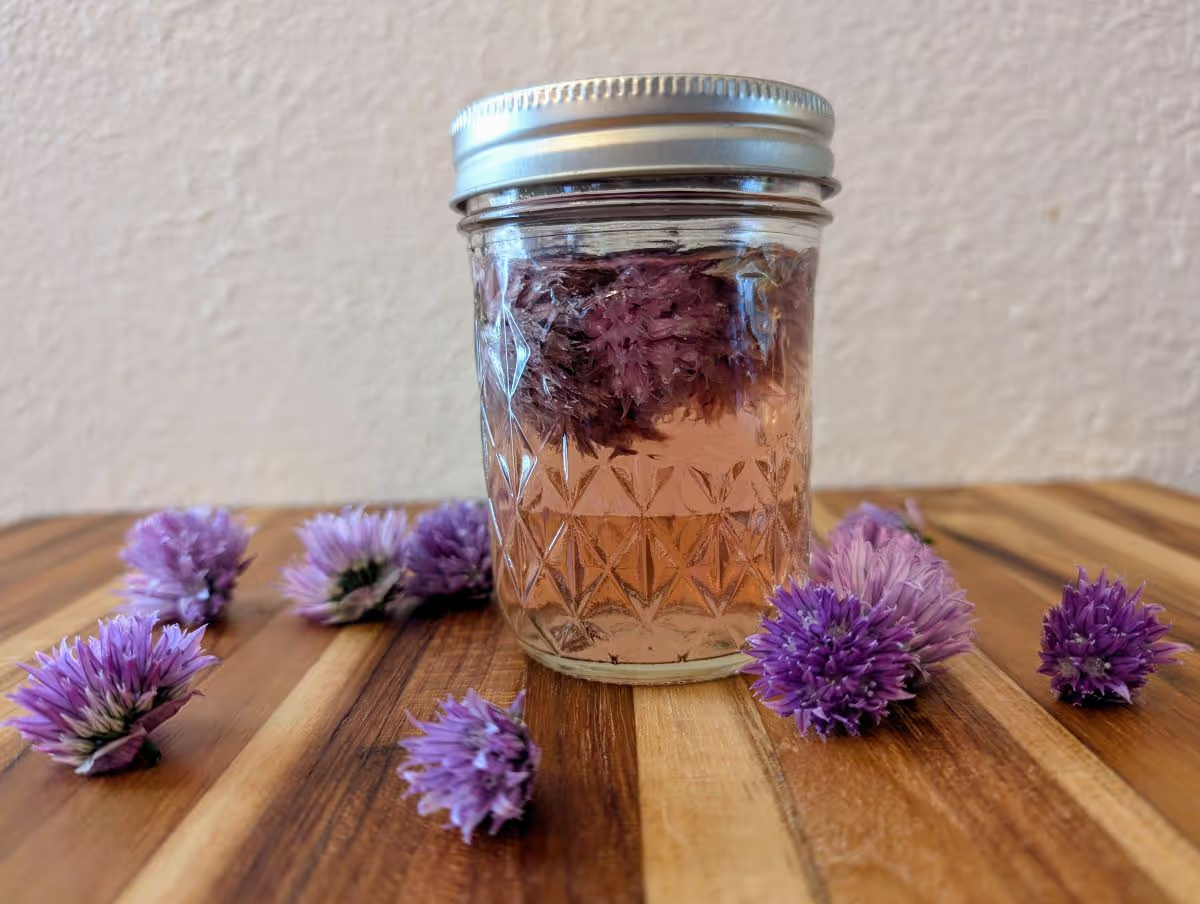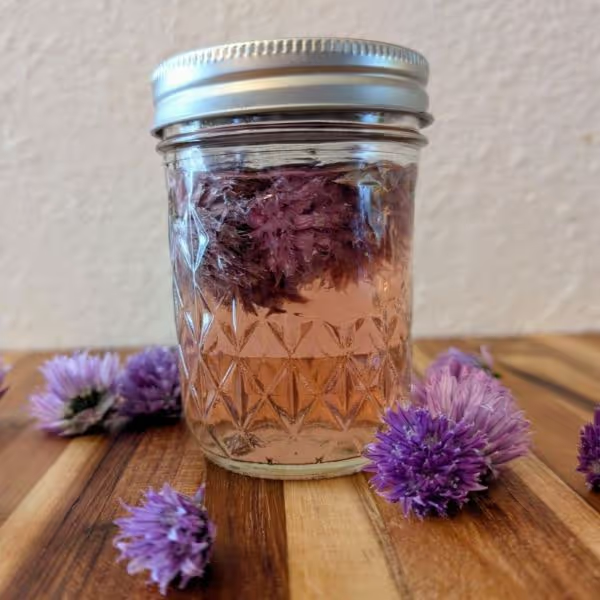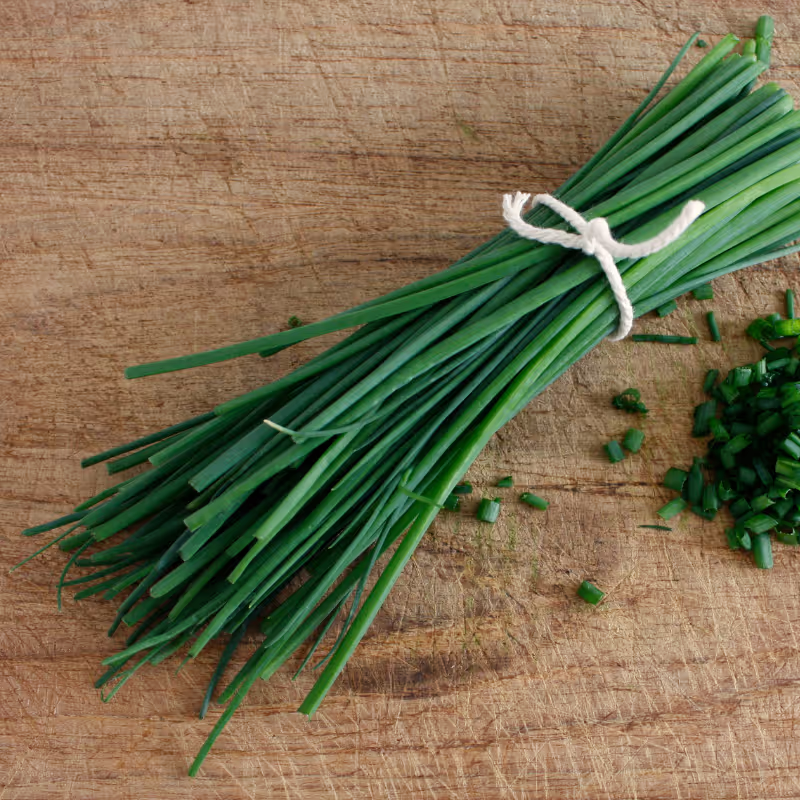
Spring and early summer bring a flood of fresh produce, and some of the most fleeting treats are the ones that grow quietly in the margins—like chive blossoms. These lavender-colored globes often show up in CSA boxes alongside tender greens and herbs. Infusing vinegar with them is one of the easiest ways to stretch their flavor and beauty into the weeks ahead.
The process takes just a few minutes of active time and rewards you with a pale pink vinegar that tastes as good as it looks. Milder than raw onion or garlic, chive blossoms lend a soft allium note that works surprisingly well in both bold and delicate recipes. It's a great example of how seasonal cooking doesn’t have to be complicated—it just has to start with something fresh and local.
Even a small bunch of blossoms can make a jar, and once you try it, you might find yourself watching you spring boxes like a hawk. The vinegar brightens anything it touches and plays especially well with early summer vegetables, delicate greens, and dishes that benefit from a little acidity.
What to Serve It With
This vinegar shines in places where you’d usually reach for white wine vinegar or lemon juice. A few ideas to get started:
- Whisk it into vinaigrettes for salads made with arugula, spinach, or mixed lettuces
- Use it in a creamy potato salad with hard-boiled farm eggs and fresh herbs
- Add a splash to quick cucumber pickles or radishes
- Stir into yogurt or sour cream for a light, oniony dip
- Use it to deglaze a skillet when sautéing early-season vegetables like snap peas, asparagus, or baby carrots
- Mix with oil, mustard, and honey for a tangy marinade for grilled vegetables or tofu
What to Do with the Pickled Blossoms
Don’t toss the spent blossoms once the infusion is done. They’re still packed with flavor and make a great garnish or finishing ingredient:
- Chop them finely and mix into deviled eggs or egg salad
- Stir into compound butter for spreading on warm bread or grilled vegetables
- Fold into soft cheeses like goat cheese or cream cheese for a savory spread
- Sprinkle over grain bowls or roasted vegetables
- Add to homemade tartar sauce or savory yogurt dips
- Use them as a punchy topping for open-faced sandwiches or avocado toast
The blossoms keep well in the fridge for several weeks, especially if stored in a bit of the strained vinegar. They’re tangy, floral, and a little unexpected—exactly the kind of ingredient that makes everyday dishes feel just a bit more special.

Chive Blossom Vinegar
- 1 pint mason jar with lid
- Gently rinse the chive blossoms in cool water and swish them to remove any dirt or insects. Pat dry with a clean towel or paper towels. Pull the blossoms apart into individual florets if desired, or leave them whole for a bolder presentation.
- Wash the jar and lid in hot, soapy water, then rinse well. To sterilize, pour boiling water over the jar and lid and let sit for a few minutes. Drain and let air dry.
- Place the chive blossoms in the jar. Gently press them down to make room, but don’t pack them too tightly. Pour the vinegar over the chive blossoms. Seal the jar with the lid and set it in a cool, dark place (like a cupboard or pantry). Let it infuse for 3 to 5 days.
- Taste after 3 days. If the flavor is strong enough for your liking, strain out the blossoms and transfer the vinegar to a clean bottle or jar. If not, let it sit a day or two longer. Store the finished vinegar in the refrigerator for up to 3 months.

